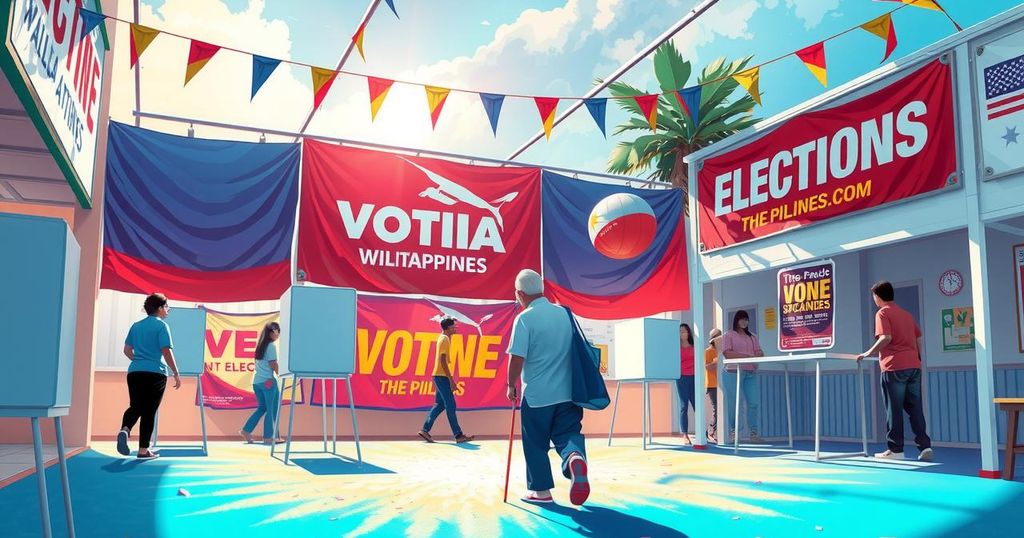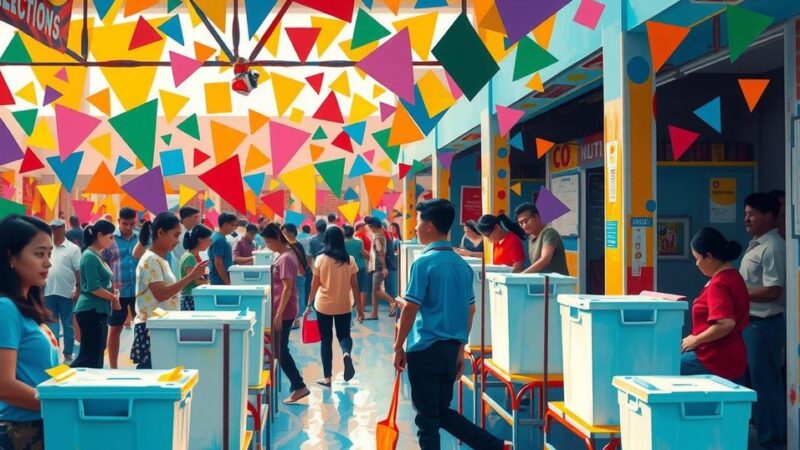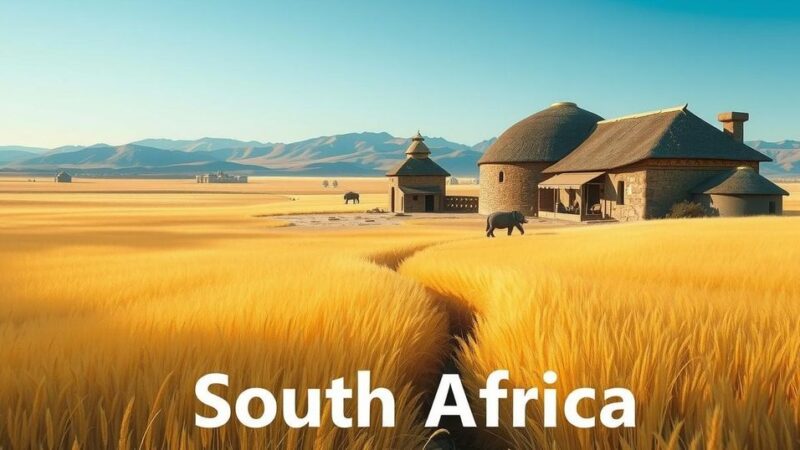The Philippines conducts midterm elections with over 18,000 positions up for election, including 12 Senate seats vital for Vice-President Sara Duterte’s impeachment. The rivalry between the Marcos and Duterte families plays a significant role in the electoral stakes, as candidates on both sides vie for power amid growing tensions in their alliance.
The Philippines is currently engaged in crucial midterm elections with over 18,000 positions up for grabs. Voting began at 07:00 local time and was scheduled to run until 19:00. The 12 Senate seats available are particularly significant and could influence the ongoing impeachment proceedings against Vice-President Sara Duterte. Other key elections include positions for mayors, vice-mayors, and local councillors, as former President Rodrigo Duterte seeks the mayoralty of Davao despite facing legal issues in The Hague.
Former President Duterte’s senatorial candidates, dubbed DuterTen, include loyal allies such as Bong Go and former police chief Ronald dela Rosa, both of whom played roles in the controversial war on drugs. The lineup also features high-profile figures like fugitive pastor Apollo Quiboloy, along with several entertainers and loyalists. Many candidates are associated with the PDP-Laban party, which previously served as a pro-democracy vehicle in the 1980s.
On the flip side, Bongbong Marcos is fielding a robust slate of candidates that includes former boxing champion Manny Pacquiao and established political figures from prominent dynasties. The Alliance for the New Philippines, a coalition formed specifically for this election, features candidates from powerful families and wealthy business interests. Notably, Camille Villar aims to succeed her mother Cynthia in the Senate, while her brother Mark currently holds a senator’s seat.
The once-promising partnership between Marcos and Duterte has soured since their overwhelming victory in the 2022 elections. Both are scions of influential political families, with the alliance initially seen as unifying forces in the country. Yet, differing agendas have raised tensions within the coalition, complicating the political landscape leading into this election.
Rodrigo Duterte’s political aspirations remain formidable despite his detention in The Hague. His candidacy for mayor of Davao City positions him for a notable comeback, as his son Sebastian runs for vice-mayor. Should they both win, familial control of city hall, long synonymous with the Duterte name, continues uninterrupted. Davao City is notable for its tough-on-crime policies that have drawn both investment and criticism for alleged human rights abuses.
The stakes are incredibly high for both the Marcos and Duterte families. For Bongbong Marcos, the election serves as a crucial test of his presidency and political capital in the Senate, where he seeks to bolster support to potentially convict Sara Duterte in upcoming impeachment proceedings. Conversely, if Sara’s political ambitions falter due to her father’s legal troubles, it could signify a decline in the Duterte family’s political power.
Overall, the current midterm elections represent a significant chapter in Philippine politics, with ramifications not only on immediate power struggles but also on the legacies of these two influential families. With 68.4 million voters involved across the archipelago, today’s results will undoubtedly shape the political narrative leading into the future of the country.
The Philippine midterm elections highlight the fierce political rivalry between the Marcos and Duterte families, with thousands of positions at stake. The results today could significantly influence Sara Duterte’s future, particularly concerning her expected run for the presidency in 2028. With Bongbong Marcos needing to cement support for his leadership, the ramifications of this election extend beyond immediate politics, impacting their legacies and the landscape of Philippine governance.
Original Source: www.bbc.com






